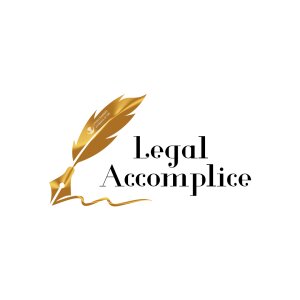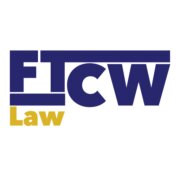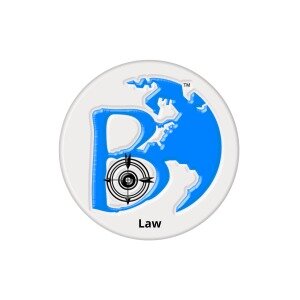Best Faith-Based Law Lawyers in Jamaica
Share your needs with us, get contacted by law firms.
Free. Takes 2 min.
Or refine your search by selecting a city:
List of the best lawyers in Jamaica
About Faith-Based Law in Jamaica
Faith-Based Law in Jamaica pertains to the legal considerations and practices that intersect with religious beliefs and practices. Jamaica's legal system is rooted in common law, but the diverse religious landscape-primarily comprising Christianity along with Rastafarianism, Hinduism, Islam, and others-poses unique challenges and considerations in legal contexts. Faith-based legal issues may involve marriage, education, child upbringing, religious properties, and non-profit organizations based on faith. Recognizing and respecting these religious practices while aligning with fundamental rights and laws is critical in the Jamaican context.
Why You May Need a Lawyer
Individuals might seek legal advice in Faith-Based Law for several reasons. Common situations include unauthorized land use for religious purposes, resolving marital disputes where religious laws or customs are involved, estates and wills drafted with religious considerations, and ensuring compliance with registration and operation of faith-based charitable organizations. Additionally, legal help may be necessary when there are conflicts between secular and religious laws or when fighting discrimination based on religion.
Local Laws Overview
Jamaican law recognizes freedom of religion as a fundamental right. However, when religious practices conflict with public policy or the rights of others, legal intervention may be required. Key local laws relevant to Faith-Based Law include the Marriage Act, which accommodates religious ceremonies; the Charities Act, governing faith-based organizations; and various family law provisions respecting religious customs. Understanding these laws is imperative for operating within the legal boundaries while practicing one's faith.
Frequently Asked Questions
1. What is Faith-Based Law?
Faith-Based Law involves legal issues that arise from religious beliefs or affect religious practices. It encompasses matters like religious marriage ceremonies, property disputes involving religious institutions, and the functioning of faith-based organizations.
2. Is religious marriage recognized under Jamaican law?
Yes, religious marriages are recognized in Jamaica, provided the ceremonies are conducted by authorized officiants and meet the legal requirements of the Marriage Act.
3. Can religious beliefs influence court decisions in Jamaica?
While personal beliefs may be considered, Jamaican courts primarily base decisions on statutory law and legal precedents. However, religious context can play a role in matters like family law or inheritance under specific circumstances.
4. Are there any legal protections against religious discrimination?
Yes, the Jamaican Constitution provides protections against discrimination on the grounds of religion. Legal recourse is available if one's rights to practice their religion are infringed upon.
5. Can faith-based organizations operate as non-profits in Jamaica?
Yes, faith-based organizations can register as charities under the Charities Act, which provides guidelines for their operation and the benefits of such status.
6. How does Jamaican law address religious property disputes?
Religious property disputes are generally resolved under property and trust laws. Legal advice is recommended to navigate the nuanced issues of religious property ownership or use.
7. Are there any legal considerations for religious schools?
Religious schools must comply with education regulations while maintaining their religious ethos. They must balance religious teachings with the national education curriculum standards.
8. Can employment be legally influenced by religious beliefs?
Employment laws protect against unjust dismissal or discrimination based on religion. However, in faith-based organizations, religious beliefs may be a legitimate requirement for specific roles.
9. What can be done if a religious leader acts unlawfully?
Religious leaders are not above the law; unlawful acts should be reported to the appropriate authorities, and legal proceedings can be initiated similar to any other citizen.
10. How does one start a faith-based charity in Jamaica?
To start a faith-based charity, one must register under the Charities Act, ensuring compliance with legal and financial regulations specific to charities and non-profits.
Additional Resources
For further assistance, the following resources may be helpful:
- Jamaican Bar Association - Resource for finding licensed attorneys.
- Ministry of Justice - Offers information on legal rights and judicial procedures.
- Office of the Public Defender - Assists with rights-related grievances and discrimination.
- Faith-based councils and religious leaders - Offer guidance specific to respective faiths.
Next Steps
If you find yourself in need of legal assistance in Faith-Based Law, consider the following steps:
- Identify the exact nature of your legal issue and gather all relevant documents.
- Consult with a qualified attorney who specializes in Faith-Based Law. The Jamaican Bar Association can provide references.
- Research and understand basic rights and laws pertinent to your situation, using resources from governmental bodies and legal aid organizations.
- Be open to mediation or alternative dispute resolution methods which may respect your faith context while providing legal solutions.
Lawzana helps you find the best lawyers and law firms in Jamaica through a curated and pre-screened list of qualified legal professionals. Our platform offers rankings and detailed profiles of attorneys and law firms, allowing you to compare based on practice areas, including Faith-Based Law, experience, and client feedback.
Each profile includes a description of the firm's areas of practice, client reviews, team members and partners, year of establishment, spoken languages, office locations, contact information, social media presence, and any published articles or resources. Most firms on our platform speak English and are experienced in both local and international legal matters.
Get a quote from top-rated law firms in Jamaica — quickly, securely, and without unnecessary hassle.
Disclaimer:
The information provided on this page is for general informational purposes only and does not constitute legal advice. While we strive to ensure the accuracy and relevance of the content, legal information may change over time, and interpretations of the law can vary. You should always consult with a qualified legal professional for advice specific to your situation.
We disclaim all liability for actions taken or not taken based on the content of this page. If you believe any information is incorrect or outdated, please contact us, and we will review and update it where appropriate.
Browse faith-based law law firms by city in Jamaica
Refine your search by selecting a city.
















